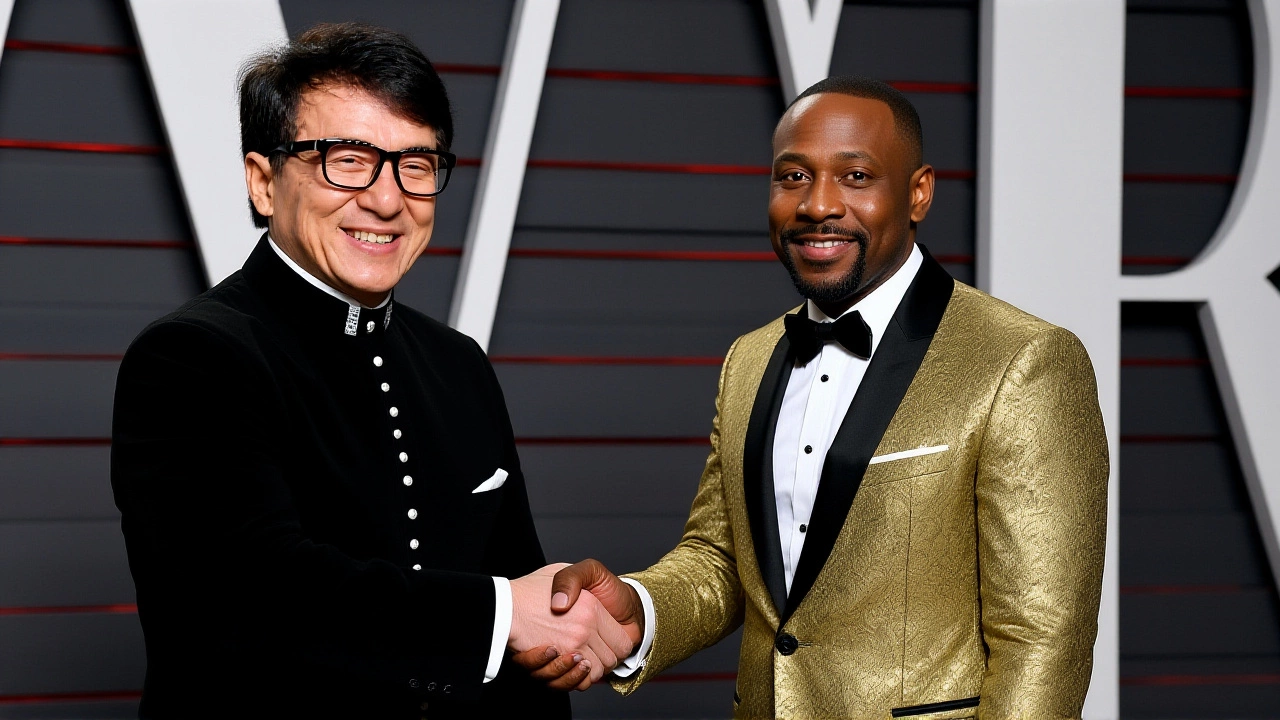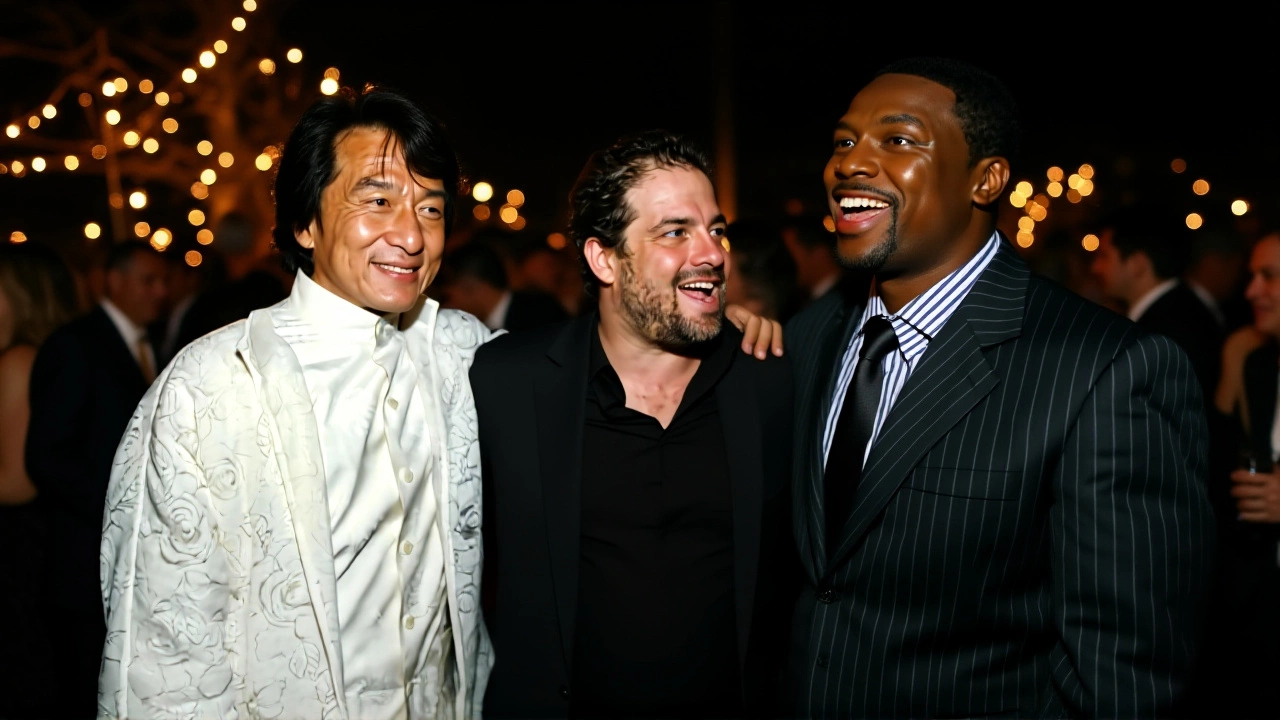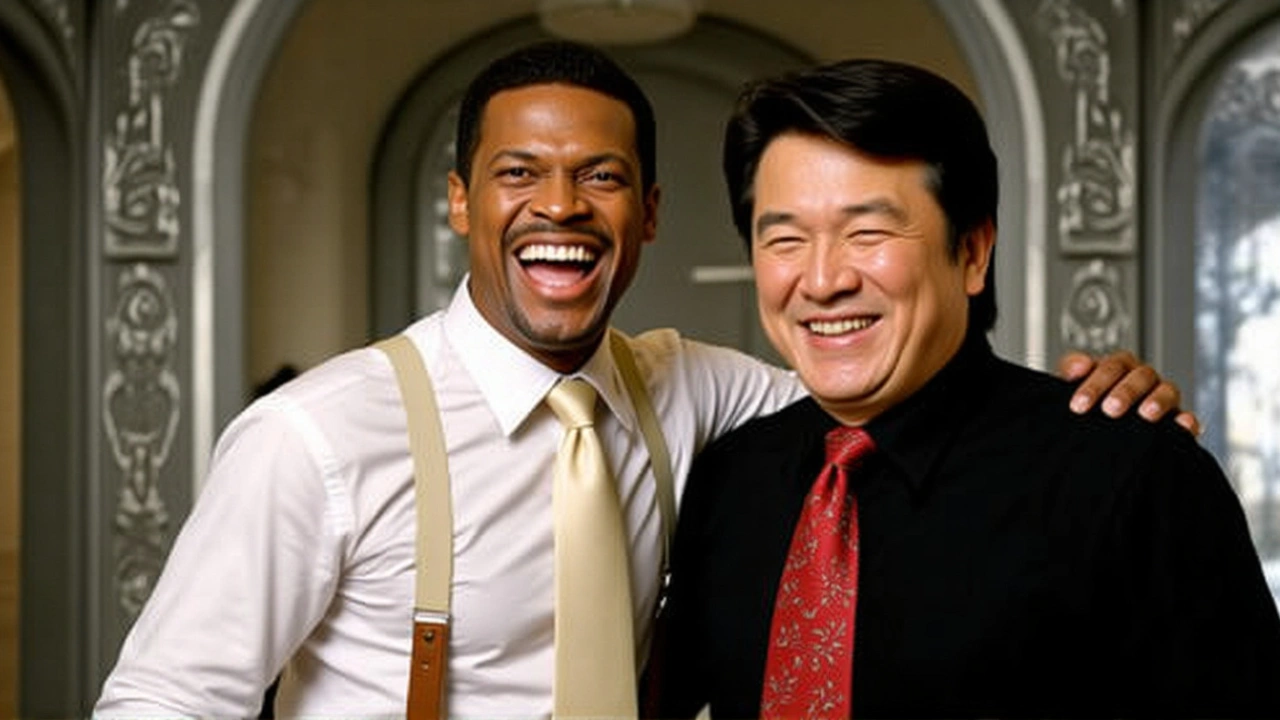Paramount Pictures will release Rush Hour 4—but not because of studio ambition, box office potential, or creative momentum. It happened because Donald Trump called in a favor on behalf of Brett Ratner. The confirmation came on November 25, 2025, when Puck published a terse update: "Paramount will release Rush Hour 4 after prodding from Donald Trump on behalf of Brett Ratner. It's a distribution deal." No fanfare. No press release. Just a quiet nod from the top. And yet, this is the kind of Hollywood moment that reveals how power really works in the entertainment industry.
How a Distribution Deal Became a Political Transaction
The phrase "distribution deal" is deliberately understated. It means Paramount won’t finance or produce Rush Hour 4. It won’t greenlight the script, hire the crew, or pay for reshoots. It will simply put the finished film in theaters and on streaming platforms. That’s it. But who made sure the film got finished? And why did Paramount agree to distribute it now, after years of silence on the franchise? The answer lies with the Ellison family. Specifically, David Ellison, founder and CEO of Skydance Media, and his father, tech billionaire Larry Ellison. Though Skydance didn’t produce Rush Hour, they hold outsized influence over Paramount through a $1.5 billion investment in its streaming division in 2022, brokered via RedBird Capital Partners. That investment gave them a seat at the table when it came to greenlighting projects—even ones they weren’t directly involved in. Trump’s role? He didn’t pitch the movie. He didn’t lobby for a tax break. He didn’t even mention it publicly. According to Puck’s source, he intervened privately—likely via phone call or backchannel—to ensure Ratner got his sequel. Whether it was a casual remark during a golf game or a pointed comment to a Paramount executive, the effect was immediate: the Ellisons lifted their veto.Why Brett Ratner? The Franchise’s Forgotten Architect
Brett Ratner directed all three Rush Hour films, turning Jackie Chan and Chris Tucker into global action-comedy icons. The first film grossed over $244 million worldwide in 1998. The sequels each cleared $200 million. But Ratner’s career cratered after 2017, when multiple women accused him of sexual misconduct. He stepped away from directing. His production company, RatPac-Dune, dissolved. For years, Rush Hour 4 was dead. Now, suddenly, he’s back. Not because audiences demanded it. Not because the studio saw a resurgence in nostalgia. But because someone with political clout decided he deserved another shot. That’s the unsettling truth here: in Hollywood, relationships still outweigh relevance. Ratner’s return raises questions. Will Jackie Chan and Chris Tucker reprise their roles? Is the script even written? No one knows. The update didn’t say. But the fact that Paramount is moving forward—despite the franchise’s 18-year gap and Ratner’s toxic reputation—tells us this isn’t about the movie. It’s about influence.
The Ellison Family’s Quiet Empire
Most people think of the Ellisons as tech moguls. Larry Ellison built Oracle into a $200 billion company. David Ellison built Skydance into a powerhouse behind Top Gun: Maverick and Mission: Impossible sequels. But few realize how deeply they’ve embedded themselves in Hollywood’s power structure. Through RedBird Capital, the Ellisons own a stake in Paramount Global’s streaming future. That means they don’t just have a say—they have a veto. And they’ve used it before. In 2023, they reportedly blocked a proposed Transformers reboot because they didn’t like the creative direction. Now, they’ve approved a sequel to a 2007 film because a former president asked nicely. This isn’t corruption. It’s capitalism with a side of celebrity. But it’s also a warning: when billionaires and politicians start making movie decisions, the art becomes secondary to access.What Happens Next? The Ghost of a Franchise
The biggest mystery isn’t who approved Rush Hour 4. It’s whether anyone cares. The last film, Rush Hour 3, opened to mixed reviews and a 38% decline at the box office compared to its predecessor. The cultural moment that made Chan and Tucker icons has passed. Streaming algorithms don’t favor nostalgia unless it’s tied to a new IP. And yet, Paramount is moving ahead. Expect a late 2026 release—probably in the summer, to ride the vacation crowd. Will it be a hit? Unlikely. Will it make money? Probably. Because Paramount doesn’t need it to be great. They just need it to be on their platform. And here’s the real twist: if this film succeeds—even modestly—it will set a precedent. In the future, any director with political connections might get their project resurrected. No matter the quality. No matter the controversy. Just because someone powerful said so.
Behind the Scenes: No One’s Talking
No quotes from Trump. No statements from Ratner. No response from Chan or Tucker. No comment from Paramount’s CEO, Brian Robbins. The Ellisons stayed silent. Puck’s report was bare-bones—no sources named, no emails leaked, no internal memos cited. That silence speaks volumes. This wasn’t a public win. It was a private deal. And in Hollywood, the quietest deals are often the most consequential.Frequently Asked Questions
How did Donald Trump influence the decision to release Rush Hour 4?
According to Puck’s November 25, 2025 update, Trump intervened privately on behalf of director Brett Ratner, prompting the Ellison family to approve Paramount’s distribution deal. While the exact method—phone call, meeting, or intermediary—isn’t disclosed, the timing suggests direct political leverage, not creative input. No public statements or formal lobbying were involved.
Why does the Ellison family have control over Rush Hour 4?
Through their $1.5 billion investment in Paramount Global’s streaming division via RedBird Capital Partners in 2022, David Ellison and Larry Ellison gained significant influence over Paramount’s content decisions—even for projects Skydance didn’t produce. Their stake gives them veto power over distribution, effectively making them the final arbiters of which films get released.
Will Jackie Chan and Chris Tucker return for Rush Hour 4?
There’s no official confirmation. The Puck update didn’t mention casting, and neither Paramount nor Ratner has released any details. Given Chan’s age (79) and Tucker’s recent hiatus from major roles, their return seems unlikely—but not impossible. A cameo or voice role remains a possibility if the studio wants to leverage nostalgia without heavy commitments.
Is Rush Hour 4 a full production or just a distribution deal?
It’s strictly a distribution deal. Paramount will handle theatrical and streaming release logistics, but not financing or production. The film was likely completed independently—possibly by Ratner’s team or another producer—and Paramount is merely licensing it. This minimizes financial risk and explains why the decision came so quickly: no budget approvals needed.
What does this mean for Hollywood’s power structure?
This case confirms that influence now trumps creative merit in major studio decisions. When billionaires and former presidents can override studio executives to revive a decades-old franchise, it signals a shift toward gatekeeping by personal connections—not market demand. It’s a blueprint for future projects: if you know the right people, your film gets released, regardless of its quality or relevance.
When will Rush Hour 4 be released?
No official release date has been announced. Industry insiders speculate a summer 2026 rollout to capitalize on the vacation season, but with no production schedule or marketing plan confirmed, the timeline remains speculative. Paramount has not provided any milestones, suggesting the project is still in its earliest stages.
